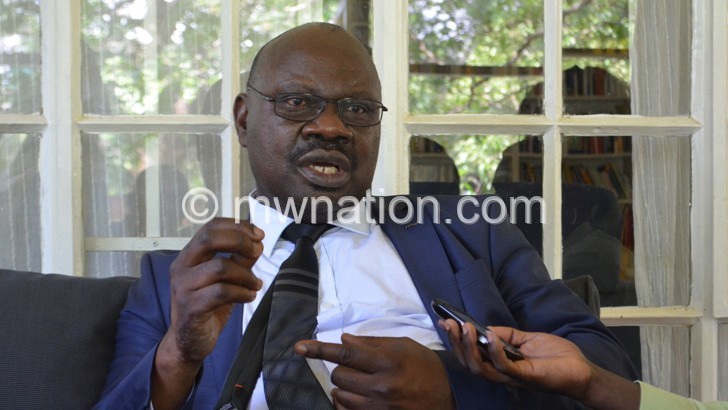Treasury rebuffs Legal Aid
The Ministry of Finance, Economic Planning and Development has not allocated resources towards the Legal Aid Fund for over two years to allow more Malawians who cannot afford a private lawyer access free legal services.
The Legal Aid Act was enacted in 2010 but only became operational and independent of the Ministry of Justice and Constitutional Affairs in 2015.

Although the Act allowed for the establishment of a fund where donors and civil society organisations (CSOs) can pool funding for its operations, government has not capitalised it.
In 2017/18, the bureau expected the capitalisation of the fund amounting to K40 million, but this did not happen. They have since projected a capitalisation of K60 million in 2019/20.
Legal Aid Bureau director Masauko Chamkakala confirmed that since the bureau opened bank accounts necessary to house the fund, on the advice of government, they have not put in any money.
“The Legal Aid Fund capitalisation is facing difficulties as government is yet to capitalise it in the two years of this fund. The bureau has and continues to engage government on this very important matter,” he said in an emailed response to a questionnaire.
But Secretary to the Treasury Ben Botolo said while the intention to set up a fund was good, its modalities were not simple.
He said a fund should be under Treasury, according to the Public Finance Management Act, but the Legal Aid Fund was placed under the Legal Aid Bureau.
He gave examples of the Roads Fund and Local Development Fund, which he said had clear sources of funding not from Treasury.
In the case of Roads Fund, resources come from the fuel levy and Malawi Rural Electrification Programme (Marep) levy, among others.
“With the Legal Aid Fund, we are still grappling with where the money for the fund will be coming from. We are trying to avoid a scenario where it becomes just another subvention from Treasury. That was not the intention,” he said.
He said before Treasury could capitalise it, there was need to define which levies would contribute to the fund and by its nature, the exercise was not easy.
“The source of the funds for the fund is the problem. We will need to take revenue where the sector is benefitting and in the case of legal aid, which is this? The fund cannot rely on well-wishers because the funding flows will be too inconsistent and defeat the purpose of it,” Botolo said.
While waiting for the government capitalisation, Legal Aid Bureau has turned to its clients to pay when they seek legal services.
Chamkakala said this was in line with the Legal Aid Act, but the operations of the bureau were also dependent on contributions from some cooperating partners who have put money in the fund.
Its plans to open five district offices in 2018/19 financial year have also hit a snag because Treasury has not provided adequate resources to recruit staff.
“The staff compliment in the regional offices remains very thin despite the higher number of persons seeking the service. The bureau is in constant negotiations with government to assist it in this endeavour,” Chamkakala said.
But as a beneficiary institution of the European Union-funded Chilungamo Programme, Legal Aid Bureau has benefitted in terms of furniture and equipment but the demand for legal aid still outstrips the resources from the government.
The bureau was allocated about K1 billion in the 2018/19 Budget following a high demand in its services.
“Government resources allocated to the bureau under the budget are always inadequate. This is further compounded by the inability by government to disburse all the resources under the budget,” he said.
There is a surge in the number of persons seeking legal aid services and the bureau has set up the National Legal Aid Coordinating Committee (NLACC) with other CSOs and government departments to reduce the burden of legal aid demand.
In 2016/17, the bureau handled 2 776 criminal cases and 3 675 civil cases, apart from providing legal clinics to 17 prisons across the country.





